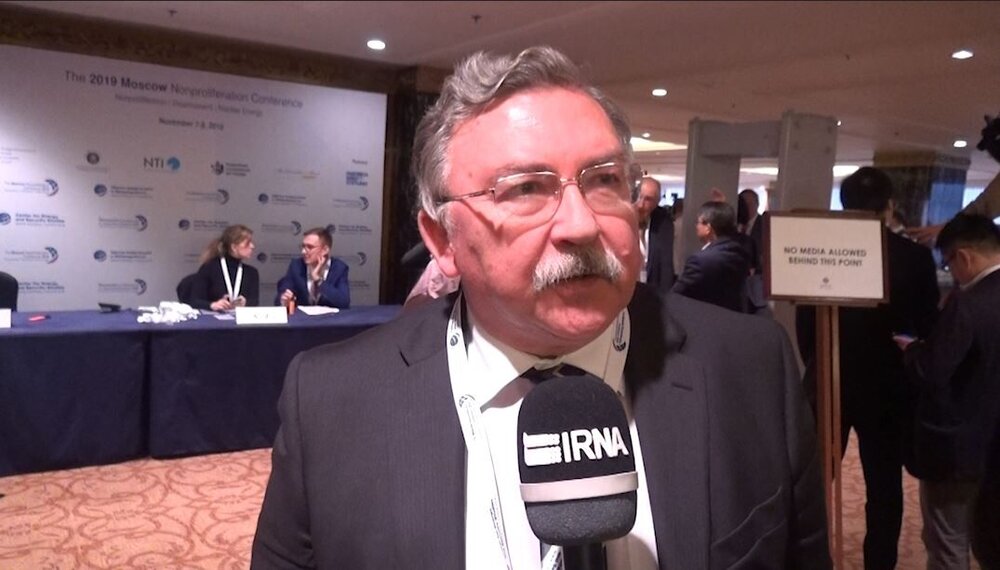Moscow warns E3 of triggering dispute mechanism’s consequences: envoy

TEHRAN - Mikhail Ulyanov, Russia’s permanent representative to international organizations in Vienna, has said that Moscow has warned the European Union trio, known as E3, of the consequences of triggering the dispute mechanism in the nuclear deal.
“Kremlin has negative view on this action of the three European countries,” he told IRNA in an interview published on Saturday.
He said, “We have warned Western partners of negative consequences of this mechanism and such step.”
France, Germany and the United Kingdom issued a joint statement on Tuesday announcing they have formally triggered the dispute mechanism.
Russia’s Foreign Ministry announced on Tuesday that Moscow sees no grounds to trigger the dispute mechanism, Reuters reported.
The activation of this mechanism may make it impossible to return to the implementation of the agreement, the ministry said.
Russian Foreign Minister Sergey Lavrov said on Friday that the decision adopted by the European Union trio is “worrisome”.
“The three European countries’ decision on the JCPOA and start of the dispute mechanism are worrisome,” IRNA quoted Lavrov as saying in a press conference.
He also noted that Iran’s nuclear activities are “transparent”, adding that Iran is being inspected more than any other country.
According to UrduPoint News, Lavrov also suggested to hold a meeting on the JCPOA among its member countries in order to understand the future fate of the agreement.
“I think that it is necessary to hold some kind of meeting [on the JCPOA] in the near future in order to honestly understand the situation and understand who is thinking about what [on the deal],” he said.
Foreign Minister Mohammad Javad Zarif said on Tuesday that the Europeans are making a “strategic mistake” by triggering the dispute mechanism.
“Europeans’ action in using the dispute mechanism is baseless from legal point of view and a strategic mistake from political point of view,” he said during a meeting with Niels Annen, a German foreign office minister, in New Delhi.
Zarif also criticized the Europeans’ failure to protect Iran’s interests under in the JCPOA.
U.S. President Donald Trump quit the nuclear deal in May 2018 and introduced the harshest ever sanctions in history on Iran as part of his administration’s “maximum pressure” strategy against Iran.
In response to this move, on May 8, 2019, Iran announced that its “strategic patience” is over and started to gradually reduce its commitments to the JCPOA at bi-monthly intervals. At the time Iran announced if the European parties to the deal take concrete steps to shield Iran’s economy from the U.S. sanctions it will reverse its decision.
However, seeing no action by the Europeans, on January 6 Iran took the last and final step by removing all limits on its nuclear activities.
Iran’s moves are based on paragraph 36 of the JCPOA which “allows one side, under certain circumstances, to stop complying with the deal if the other side is out of compliance.”
Despite taking the last step, Iran has reminded the Europeans to fulfill their commitments in order to keep the deal alive.
Zarif has asked the European not to give in to U.S. bullying.
“It won't work my friends. You only whet his appetite. Remember your high school bully? If you want to sell your integrity, go ahead. But DO NOT assume high moral/legal ground,” Zarif tweeted on Thursday.
NA/PA
